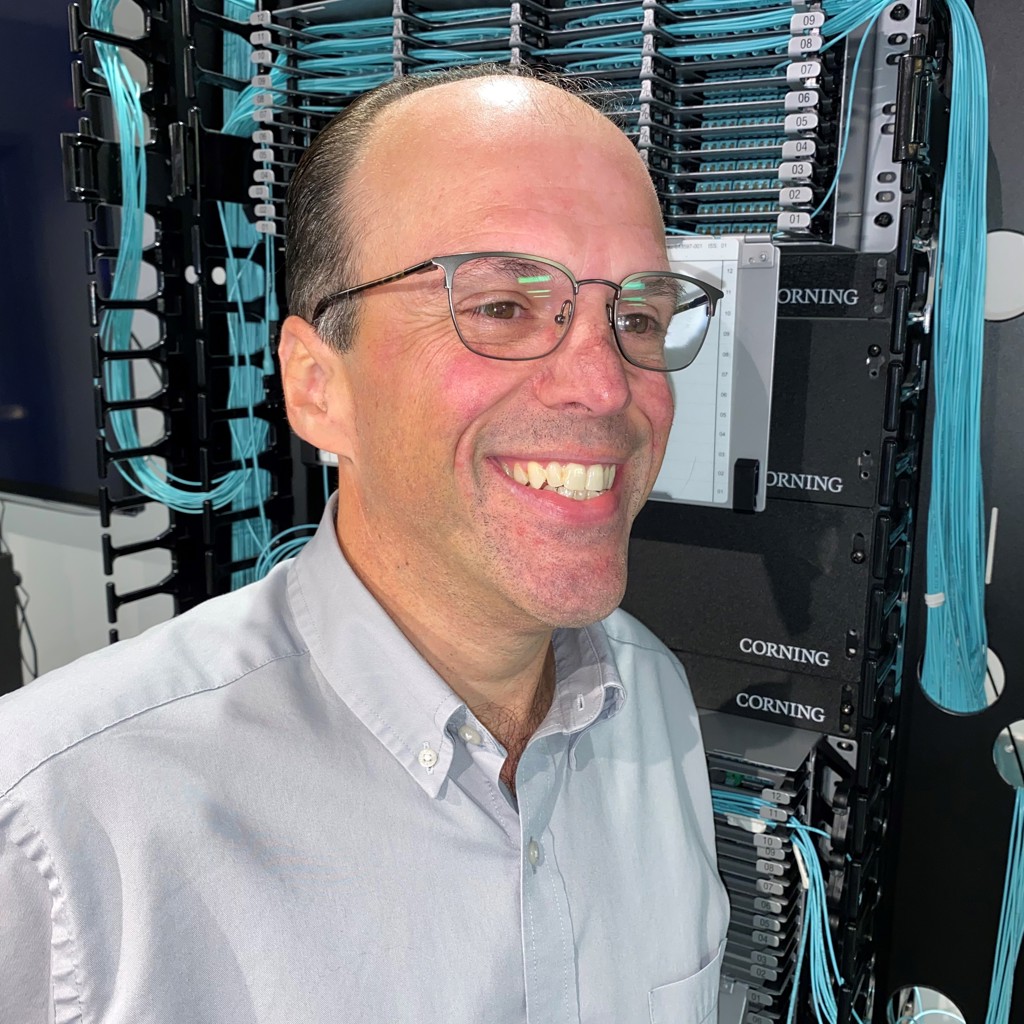Claudio Mazzali
Corning Optical Communications, USAFor business and technical leadership in optical fiber, cable and connectivity product developments.

Claudio Mazzali knew he would be in science and technology since middle school. He therefore attended a high school that allowed him to get an electronics technician certificate, which introduced him to the “routine of the laboratory, lab notebooks, design of experiments, [and] data analysis.” When it came time to choose a path for his undergraduate work, he “was not sure if [he] wanted to be a mechanical engineer…electrical engineer, or a chemical engineer, so decided to do physics so [he] could get the fundamentals of all of them.” He admits, “Basically, I did that to postpone my decision and end up falling in love with physics, and then optics.”
In Brazil, his home country, he began undergraduate studies in solid-state and semiconductor physics before switching to optics in his PhD He comments, “…in Brazil, labs and experimental infrastructure were not as available as in the United States,” and this practical limitation pushed him to use his creativity to solve problems. “My PhD thesis was about optical soliton propagation in optical fibers. During the work the external cavity tunable laser that I was using had a problem due to the high temperature of the lab during the Brazilian summer…I didn’t have the time to get the laser fixed by the manufacturer in France, so I had to build a fiber loop laser from scratch to generate the solitons. That was not part of the original thesis plan but ended up being the best chapter of my dissertation.”
With the PhD earned, it was now time for Claudio to move into the professional world, but doing what? He had always planned to go into academic research, but things changed with one phone call. “Just after my PhD, I was finishing some work at the lab, and the phone rang. It was a recruiter from Corning Incorporated. They needed somebody with technical background in high speed optical communications to help with their network analysis in South America. I decided to take the challenge ‘maybe for two years’ with the goal to learn more about real world problems so I could go back to academia and do research on more relevant problems.” There are often turning points in the careers of new graduates, and for Claudio, this one was certainly major: ”After joining Corning, I learned about industrial R&D, and I was very lucky to have my first job in a company that looks at R&D as a fundamental investment for growth. [I] got different opportunities within the company and last year I completed my 20th anniversary with the company.”
Today, he is able to stay current with the field because of his society membership. “The society has been critical not only to ensure I am up-to-date with the latest advancement in our field…but also a member of a community that has significantly changed the world many times.” In addition to support from the society, he credits mentorship from his father as well as his advisor, Professor Hugo Fragnito. Fragnito helped Claudio to build a solid foundation with scientific ethics, balance between theory and experiment, and the criticality of collaboration. Growing up, Claudio’s father used to always tell him ’go to school to learn what NOT to do’…his message was that everything we learn at school was already done by somebody else, so we should learn to start from there and then do something different-invent something new. These words inspired creativity and drive from a young age for Claudio. Changing the perspective, Claudio can now offer advice to others. He offers this: “If you have the passion, follow your passion, learn as much as you can and have fun using it to create things for others to build upon.”
Photo Credit: Claudio Mazzali
Profile written by Samantha Hornback
